- Home
- Michael McDowell
Jack and Susan in 1933 Page 2
Jack and Susan in 1933 Read online
Page 2
“Hello,” returned Susan Bright with a discomfort that made Barbara smile.
“George,” Harmon went on, “you are to let Miss Bright up to my floor anytime she pleases. Do you understand?”
“Sure do, Mr. Dodge,” said George. Miss Bright’s discomfort increased dramatically, as did Barbara Beaumont’s smile. “Here your floor, Mr. Dodge. And Happy New Year to you all.”
“Thank you, George,” said Jack, slipping a two-dollar bill into George’s hand. George deserved the tip, in Jack’s estimation. When Jack wasn’t around, George guided Harmon from the front door of the apartment building to the elevator, slid him down tenderly to the floor of the gold cage, lifted him up again when the cage had reached the twenty-third floor, and saw him to the door of his bedroom.
Harmon Dodge owned one of the topmost floors of an apartment building on Park Avenue. A few years before, it would have been unattainable by a mere partner in a law firm, but hard times had come to the owners of fine apartments, and Harmon had accepted the place in lieu of payment for his handling of a particularly involved bankruptcy case. Actually, in lieu of payment for Jack’s handling of the case.
The apartment consisted of a massive living room with views of the East River, a large dining room on the opposite side of the apartment, an adjoining kitchen and maid’s room, a large bedroom overlooking Park Avenue, and a gentleman’s study where the gentleman stockpiled smuggled liquor. There were windows all round, and at each corner of the apartment was a small tiled solarium containing the dead flowers of the previous occupants of the penthouse.
Barbara had procured Harmon a live-in maid, and had scoured the employment agencies for just the right combination of efficiency, appearance, and demeanor. The right combination, in Barbara’s estimation, turned out to be a two-hundred-pound black woman with asthma who wouldn’t do anything but dust and cook breakfast. Barbara’s reasoning behind this unlikely choice (when so many qualified women were available and wanting the work) was that a two-hundred-pound black woman with asthma was just about the only female in all of New York whom Harmon would not try to wheedle into matrimony. As Audrey could cook breakfast, and dusted now and then, and even sometimes consented to iron his shirts, Harmon realized the intelligence of Barbara’s choice.
Audrey, her wheezing visage sullen beneath a glinting crown of bob pins, shuffled out of her bedroom in a ratty red housecoat, and fetched three bottles of champagne on a silver tray. Then, setting out four champagne glasses from an ebony and glass cocktail cabinet (another spoil of bankruptcy), the maid shuffled off to bed, pausing only to remark to Susan, “Keep him away from the windows, miss, ’cause he do have a tendency to fall out…”
Susan Blight’s lower lip dropped a little, as if it took her a moment to understand the implication of this injunction. “Does she expect me to stay the night?” Susan asked Barbara in a low, surprised voice.
Barbara Beaumont laughed gaily, a gay laugh that might have meant any number of things, such as Don’t bother to play the innocent with us, Miss Bright or Whose lower limb are you attempting to manipulate? Jack, as he unwrapped the first bottle of champagne, thought Susan Bright’s confusion looked very real. It wasn’t, of course, he was sure of that, for Miss Bright didn’t actually blush. Jack himself blushed at anything—at the very thought of blushing, in fact—and even now could feel the blood rushing up through his neck and into his face. So if Miss Bright weren’t blushing, then she wasn’t ingenuous, and it was quite apparent to Jack that she was merely as good an actress as she was a singer. Here was Harmon, slouched on the sofa with his head thrown over the back, not quite comatose yet but on his way, and here was Miss Bright next to him, doing her best to look uncomfortable, probably in hope that Jack and Barbara would get the hell out of there so that she could get Harmon into bed before he was quite unconscious. Yet it was a good act, for Susan really did look uncomfortable.
“Thank you,” she said quietly as Jack handed her a glass of champagne.
“Harmon, sit up,” said Barbara briskly. “You’re making a spectacle of yourself, which is not new to us but which is evidently making your friend extremely uncomfortable as you invited her up here and she was probably under some absurd notion that you intended to remain conscious for a few minutes, at least until we could toast the New Year properly, that is, with real champagne.”
“Happy New Year,” said Harmon, raising his head slowly from the back of the sofa, and taking the glass of champagne from Jack.
“To prosperity,” said Jack, raising his glass.
“To solvency,” said Susan Bright, raising hers with a small gesture suggesting a sincere skepticism.
“And may the coming year,” said Barbara as if she were already bored with the proceedings, “be not quite so boring as the last. If the whole country, and us especially, are to be so confoundedly miserable and poor, let us at least have a year that is not so unremittingly dreary.”
They drank.
Susan Bright’s eyes shifted round the room. “I’m not so certain,” she remarked with a little hesitant deference, “that you should think of yourself as ‘confoundedly miserable and poor.’ There are a great many people in New York who couldn’t afford this champagne, or this penthouse, or—”
“Or what?” said Barbara with her menacing smile.
“There are people who can’t afford anything,” interrupted Jack. It was too late in the evening for a fight, and he knew that his wife would fight to the death with anyone who denied her the luxury of feeling miserable and poor.
“I suppose,” said Barbara with her tiger-lying-in-wait smile, “that you were of a prominent family crashed in ’twenty-nine.”
Susan Bright blinked. “Yes,” she said.
“The Brights of Boston,” said Harmon, sitting forward with his empty glass held out for a refill.
“I’m sure you were as high then as you are low now,” said Barbara sympathetically.
Susan Bright looked as if she did not know what to say. A gold digger she was, but Jack wasn’t certain that she deserved this.
“Excuse me please,” the singer said, getting up and leaving the living room.
“A little tact,” said Jack gently to his wife.
“Me? Me?” cried his wife, taking the bottle of champagne from Jack’s hands. “I’m the soul of tactfulness.”
“I know your tact,” said Harmon, getting up and going up to the window. He fumbled with the latch. “I’ve seen it chip the furniture.” He pushed open the window and thrust his face into the frigid night air.
“Don’t you dare fall out,” said Barbara. “For then we’d have to take that woman home, and she dresses as if she lived on Staten Island.”
“She’s a very nice girl,” said Harmon, turning back from the window. There was a hint of clearheadedness in his voice, though he was looking at the second champagne bottle as if it might be a convenient way to smooth out this emerging lump of sobriety. “And I don’t know how many times I’ve gone to the Villa Vanity to hear her sing, and I don’t know how many nights I’ve gone to her dressing room to ask her to have dinner with me, and I don’t know what I’ve spent on flowers, and I certainly don’t know why she finally agreed to go out with me tonight.”
“Because you’d never invited me to meet your friends,” said Susan Bright from the doorway.
“What has that to do with anything?” said Harmon in genuine curiosity, meeting Susan at the sofa.
“It means simply,” said Barbara, “that if you invited Miss Bright here to meet your friends, then you thought she was a little more than a cheap nightclub pickup.”
“Barbara!” cried Jack.
Barbara smiled and held out her glass for more champagne. Jack poured, but as he poured, he was watching Susan Bright to see how she would respond to this insult. A cheap nightclub pickup would break a bottle over Barbara’s head. A woman of a middle-class upbringing would get up and telephone for a taxi. A lady of true gentility would have pitched Barbara out the open win
dow.
“Barbara is exactly right,” said Susan Bright with perfect dignity. “As I do consider myself somewhat better than a cheap nightclub pickup, I refused to go out with Harmon until he treated me accordingly.”
Exactly right, thought Jack. If this singer could stand up to Barbara, then Harmon might be in for real trouble. She was very pretty when she leaned against a piano, and now she turned out to be clever as well. It was a potent and dangerous combination.
“Let’s dance,” said Harmon suddenly, keeling over in the direction of the Amrad radio. (The company had gone bankrupt the year before, and Harmon had come away with the Aria, the Serenata, and the Symphony models. He’d kept the Serenata, put the Aria in Audrey’s room, and had the Symphony delivered to George the elevator man’s Harlem home.) But as the radio was twenty feet away, and Harmon’s outstretched arm came nowhere near the dial, Jack got up and tried to find a station playing dance music.
“’NXQ,” suggested Susan. “Ted Lewis is broadcasting live from Chez Firehouse tonight.”
It was easy to find the station, as Ted Lewis’s tonsilly tenor crooned “Dip Your Brush in Sunshine.” Harmon got slowly to his feet, discreetly assisted by Susan Bright. He draped his arms over her shoulders, and the two moved slowly across the living room floor.
Jack watched Harmon and Susan for a few moments as he opened the second bottle of champagne. Then he watched Barbara watching them. He wondered what his wife was thinking. Harmon was, for better or worse, their best friend. It had always been the hope of Harmon’s father and Barbara’s father that Harmon and Barbara should marry. And Harmon and Barbara had known each other quite forever, and once had even been engaged. But they’d known each other too well and too long, and Barbara wasn’t the sort to want something she could have and that was good for her at the same time, and had broken the engagement. This satisfied Harmon as well, for he had established at a young age his abiding passion for young women of a certain type utterly distant from Barbara. After the broken engagement, the two were the greatest friends possible, and attained a kind of jocular intimacy. Harmon had been best man at the wedding. At the reception he’d broken a hundred-year-old punchbowl. Jack, though, wondered what Barbara thought as she watched Harmon Dodge dancing with the nightclub chanteuse.
“A penny for your thoughts,” he said, coming to refill her glass.
“I’m certain she dyes,” said Barbara in a whisper. “No one’s hair is truly that black.”
Barbara sipped her champagne, watching Susan Bright over the rim of her glass. Jack perched himself on the arm of her chair and put his arm around his wife.
“Don’t sit there,” said Barbara. “When you perch like that, you invariably tip over and spill your drink, usually on me. Why don’t you ask me to dance?”
“Because I always step on your feet,” said Jack.
“Yes, but at least my dress is safe.” She reached over and turned out the lamp on the table beside her. Now the room was lighted only by the soft glow of the lights in the open cocktail cabinet, by the yellow dial of the radio, by the cold waxing moon shining through the windows at the end of the room, and by the softly glowing lights of the East Side.
Barbara rose, took Jack’s champagne glass and set it safely aside. Then she placed her head against his shoulder—for Jack was quite tall, and Barbara only of medium height—and Jack put his arms about her. Holding his breath against a too-strong infusion of Miracle perfume, he brushed his lips against her cheek. “New Year’s,” he whispered. “Truce?” Meaning, of course, not a truce between them, but between Barbara and Susan Bright.
Barbara considered this. “Till the champagne gives out,” she conceded.
The couples danced slowly in the darkened living room. Ted Lewis crooned on, assisted by the Boswell Sisters and a surprise appearance (some time after four A.M.) by Ethel Waters. Every song somehow sounded sad. The two couples continued to dance, pour more champagne, look out of the windows, lean against the radio, pick the leaves from the dead plants in the solaria, and became more and more melancholy thinking of the year that lay ahead, and the dismal hope that was so meager and groundless that it was no hope at all, that things would get better and not worse. When Jack inadvertently knocked over the last bottle, Audrey made a psychic appearance with a fourth bottle, uncorked it, poured four more glasses, and then crept back to bed, preserving them all for another while.
“An invaluable woman,” Harmon remarked to Jack and Barbara over Susan Bright’s bare white shoulder, “and if she didn’t have asthma, and weighed half as much, and weren’t in love with George, then I would have probably married her by now.” Then he pulled back and looked tenderly at Susan, who didn’t have asthma, weighed just about half as much as Audrey, and almost certainly wasn’t in love with the gentleman who drove the penthouse elevator.
“Is everybody happy?” Ted Lewis called out on the radio.
“No!” cried Jack and Barbara, Harmon and Susan.
And then the first sun of the new year rose bleakly over the East River, spilling orange light over their drawn faces.
CHAPTER THREE
“I WANT A MORNINGCAP,” said Barbara with her face turned away from the rising, unflattering sun, “and then I want to go home. Jack, pour something sharp into a glass and don’t tell me what it is, would you?”
Jack poured dark rum into a glass and handed it to his wife, who was looking intently at a wall. Not because the wall held any intrinsic interest for her, but if she pressed closely enough to it, no one could see how drawn and tired her face was. At this point in the proceedings, Jack thought he wouldn’t mind staring at a wall for a few hours or so, until Everything and Everyone went away, or the Depression was cured, or something else equally improbable came to pass.
Harmon had genially passed out on the sofa, with his legs thrown across Susan’s lap. Susan’s head lolled on the back of the sofa, her eyes were gently closed, and she softly sang a song that Jack didn’t know. She looked up only when Audrey came sleepily out of her bedroom and tossed a blanket over Harmon’s head.
“Pardon me,” said Audrey as she fumbled in Susan’s lap to pull off Harmon’s shoes.
Susan obligingly raised Harmon’s feet, and asked, “Won’t he suffocate with the blanket over his head?”
“Hasn’t yet,” replied Audrey, heading back for her room. “And Happy New Year, y’all.”
“Happy New Year,” returned Jack.
“Happy New Year,” returned Susan.
“I’ll have another morningcap,” said Barbara, still staring at the wall, though she’d moved down to a new patch.
“Miss Bright?” asked Jack. Susan now sat with Harmon’s unshod feet in her lap. The blanket over his head muffled his rhythmic snore.
“No thank you,” said Susan. “I really should be getting home soon.”
“Oh,” said Barbara, turning suddenly away from the wall, but ducking immediately into a cool shadow. “Oh, please do let Jack drive you.”
Jack turned, with Barbara’s glass in one hand and the bottle of rum in the other.
“Ah, yes of course,” he said uncertainly, not sure what Barbara wanted out of this.
“No, of course not,” said Susan. “If you are half as tired as I am, you’ll want to go directly home yourselves. I can easily call a taxi.”
“No, no, we insist,” said Barbara. “You live on Staten Island, don’t you?”
“No,” returned Susan with a crinkled brow. “What made you think that? I live on Seventy-first Street, near the Hudson.”
“Oh yes,” said Barbara in a tone that suggested she had heard of the river that bordered the unfashionable side of the island. “Yes, yes,” she mused, “the Hudson is a very pretty river, I believe, and we were at a party once—do you remember, Jack, though it was ever so long ago—at an apartment building on that side of the park. You could see the Hudson from the maid’s room’s terrace.”
“Actually,” said Jack, in deference to honesty, “you know the Hudson
quite well, darling. Your father’s house is on it.”
“Oh yes,” said Barbara with apparent delight at the discovery. “They would be the same river, wouldn’t they? Having the same name and all. I just never connected them before. At my father’s house,” she explained to Susan, “the Hudson is quite grand, and you can sail along it for many miles and see nothing but one splendid estate after another. And here, of course, it is quite narrow and dirty, I believe, and it is certainly not anything special to live along it, so I never quite made the connection that your Hudson and my Hudson were at all the same thing.”
“I understand how you might have made such a mistake,” said Susan dryly. “The similarity of names— Hudson and Hudson —must have been very confusing. Still, there’s no reason that you have to see me home.”
“Oh, I won’t,” said Barbara, “but my husband most certainly will. Jack, call me a taxi, and then I want you to get Miss Bright directly home.”
A look passed between Barbara and Jack, a look that said, This is not pro forma politeness, Jack. Take the woman home. This glance was not lost on Susan Bright, Jack saw, and she no longer protested. Perhaps she wants to know what’s coming, thought Jack. Jack wanted to know too.
“Excuse me for a moment,” said Susan, getting up carefully and arranging Harmon’s feet on the couch. “And then I’ll be ready to go.” She disappeared down the little corridor that led to the bathroom.
“Tell me what this one’s about,” said Jack to his wife. “It’s six A.M. on New Year’s morning, and I don’t have enough mind to figure it out myself. And why are you grinning?”
“I’m grinning, darling, because we just prevented that dreadful young woman from going to bed with Harmon, who obviously would have awakened this morning with a proposal of marriage on his lips, which, it is perfectly obvious, is exactly what that dreadful young woman wanted out of this night.”
“That part I understand,” said Jack, who was actually wondering whether he wanted a morningcap of rum, too, or whether he simply wanted to crawl under the blanket with his boss and go to sleep until 1943, when things would almost certainly be vastly different. “But why should I have to drive all the way cross town to take her home?”

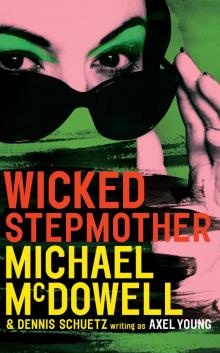 Wicked Stepmother
Wicked Stepmother Blackwater: The Complete Caskey Family Saga
Blackwater: The Complete Caskey Family Saga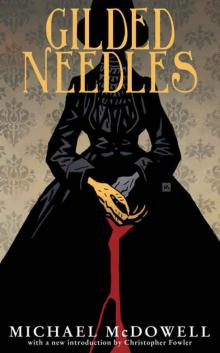 Gilded Needles (Valancourt 20th Century Classics)
Gilded Needles (Valancourt 20th Century Classics)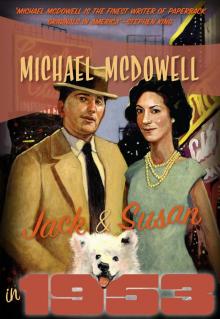 Jack and Susan in 1953
Jack and Susan in 1953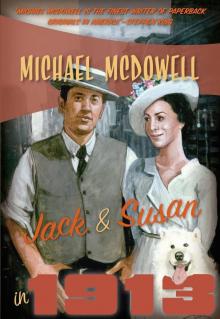 Jack and Susan in 1913
Jack and Susan in 1913 Rain
Rain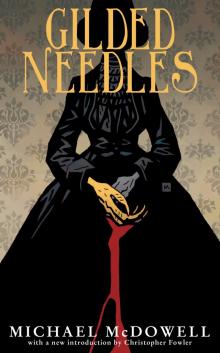 Gilded Needles
Gilded Needles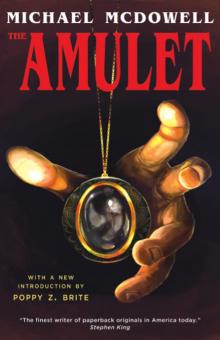 The Amulet
The Amulet Cold moon over Babylon
Cold moon over Babylon The Elementals
The Elementals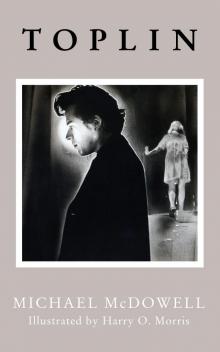 Toplin
Toplin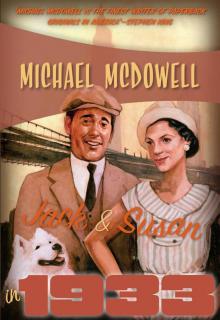 Jack and Susan in 1933
Jack and Susan in 1933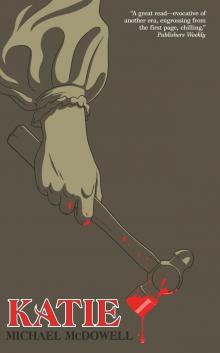 Katie
Katie The Valancourt Book of Horror Stories
The Valancourt Book of Horror Stories